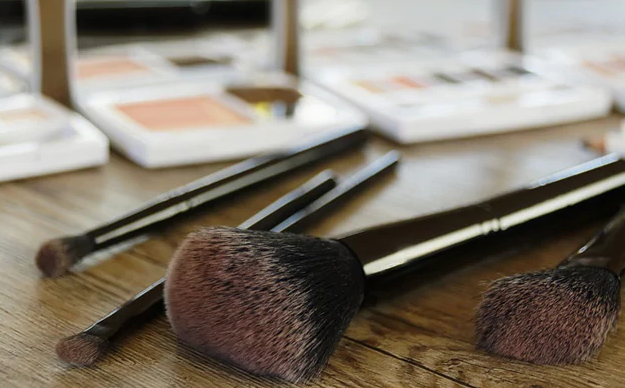
New study shows that many makeup products that have passed their expiry date, as well as many beauty tools — particularly makeup sponges — that people do not periodically clean, harbor potentially harmful bacteria, such as Staphylococcus aureus and Escherichia coli.
According to recent data, as of May 2017, 31% of people aged 18–29 years, 41% of people aged 30–59 years, and 35% of individuals aged 60 years and over wear makeup on a daily basis in the United States.
However, applying makeup in bathrooms, public toilets, and on car, train, and plane journeys gives makeup products and associated beauty tools plenty of opportunities to gather potentially harmful bacteria.
All makeup products have a “shelf life,” which refers to the period during which they are typically safe to use. The duration of this period varies from product to product, and improper use of makeup — such as rubbing eyeshadow with unclean fingers — can affect it, too.
Many companies use a symbol (an opened makeup jar) and a number — representing a number of months — on the packaging to indicate how long these products are safe to use for after a person has opened them.
European Union regulations enforce the rule that all makeup products on sale in E.U. countries should feature this shelf life information, which they call “period of time after opening,” on the packaging. However, the same is not true for the U.S.
According to the Food and Drug Administration (FDA), “[t]here are no U.S. laws or regulations Trusted Source that require cosmetics [including makeup] to have specific shelf lives or have expiration dates on their labels.”
As a result, in the U.S., at least, manufacturers can get away with not giving consumers any information about the length of time for which a makeup product remains safe.
Additionally, many makeup users also own special tools, such as brushes and sponges, to apply their products.
These tools, too, can easily pick up harmful bacteria, but many users still neglect to clean them as frequently as they should.
Now, a new study from the School of Life and Health Sciences at Aston University in Birmingham, United Kingdom, adds to the existing evidence that makeup products and cosmetic applicators harbor dangerous bacteria.
The researchers’ tests revealed that about 70–90% of all these products were contaminated with bacteria and that beauty blenders were the worst offenders.
Predominantly, the investigators found S. aureus, E. coli, and Citrobacter freundii — which bacteria are associated with skin infections, food poisoning, and urinary tract infections (UTIs), respectively.
Beauty blenders also had the highest rate of contamination with fungi, at 56.96%.
The investigators believe that this is because people must first moisten these sponges to be able to apply makeup with them.
Moist surfaces, the study authors explain, provide fertile breeding grounds for fungi.
Some of the highest loads of bacterial contaminants — particularly Enterobacteriaceae — were also present in lip glosses, with lipsticks demonstrating the lowest rate of contamination.
The researchers warn that these findings may spell trouble, particularly for immunocompromised individuals who are more prone to infection.
Read More News On
Catch all the Health News, Breaking News Event and Latest News Updates on The BOL News
Download The BOL News App to get the Daily News Update & Follow us on Google News.



